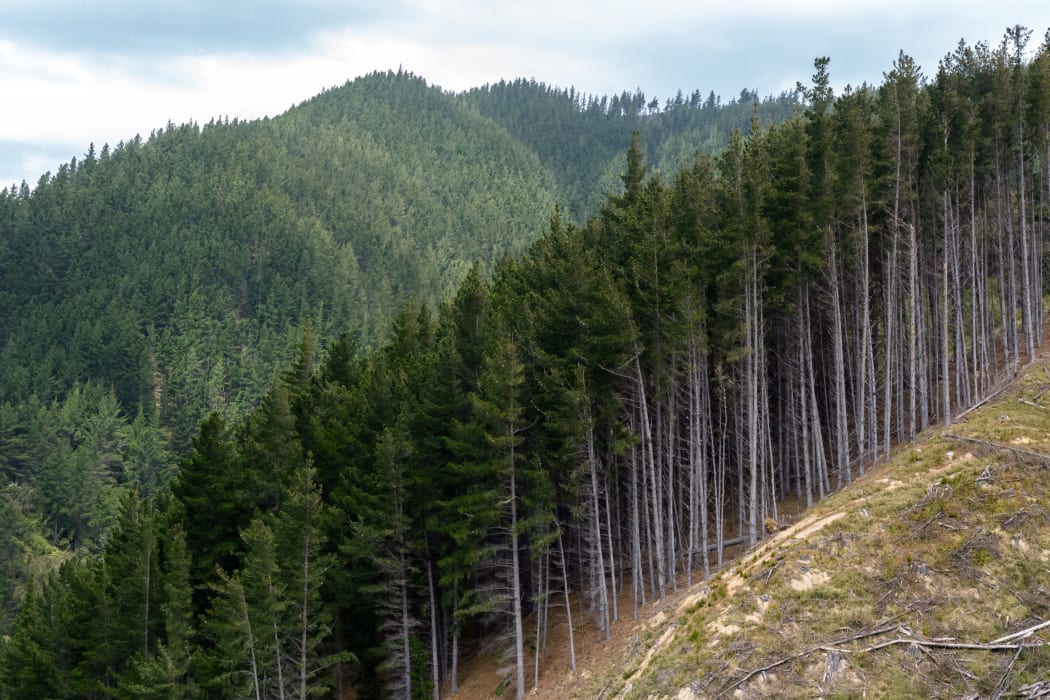Four farms covering 2,000 hectares have been sold to overseas investors for conversion to rotational forestry, according to RNZ.
Wood Central understands that the New Zealand Overseas Investment Office Special Forestry Test approved the sales.
The Special Forestry Test is a streamlined consent pathway for overseas investments into New Zealand forestry.
Under the test, investors must meet the following criteria:
- use the land principally for forestry activities
- replant after harvesting
- not to plant or convert into permanent forests or forests for other purposes, including flowering trees for honey production.
Details about the four farms converted to rotational forestry
According to RNZ, a 632-hectare beef farm in Whangārei has been sold to Swiss company Kauri Forestry – which plans to convert 420 hectares of the farm into a commercial plantation forest.
The remaining land comprises 152 hectares of native bush and scrub and 60 hectares of unplantable land, infrastructure and buffer land, including riparian and boundary setbacks.
A Dutch company has bought a 186-hectare block of land in Clutha, Otago, which is currently a mixture of farmland and forestry. It intends to maintain the existing forestry activity and convert the remaining land to trees.
US-based Port Blakely Limited acquired a large sheep and beef farm in Waimate – with the 312 hectares farm will be planted into rotational forestry by the end of next winter. The land adjoins 1785 hectares of the company’s existing forest, known as Waimate Forest.
And furniture company IKEA’s parent company Ingka Investments has purchased another farm. Most of the 954-hectare sheep, beef and deer farm in Gisborne will be planted into trees in the next two years – with harvest taking place in about 30 years.
NZ Gov makes changes to farm to forestry conversions
In February 2023, the NZ government announced plans to wind back parts of the test following repeated calls from farming groups warning that too much productive farming was lost.
It was introduced in late 2018 in a bid to support the government’s forestry priorities, including more tree planting.
Figures provided by the Overseas Investment Office show that between 2019 and 2021, 36,000 hectares of farmland were approved for sale to overseas investors.
And last month, Wood Central reported that the NZ government would introduce new rules to tighten farm-to-forestry conversions and reform the carbon accounting of forestry under the country’s Emissions Trading Scheme (ETS).
“These changes are about getting the right tree in the right place by seeing fewer pine forests planted on farmland and more on less productive land,” Forestry Minister Peeni Henare said.
NZ Foresters and Māori strongly oppose the reforms.
According to NZ Forest Owners Association’s (NZFOA) Grant Dobson, “one of the proposals included in the reform options talks about having a forestry generated NZU at a lower value than an emission reduction NZU.”
Meanwhile, Te Taumata chairperson Chris Insley said the reforms could be incredibly prejudicial to Māori, jeopardising huge amounts of possible ETS revenue.
“[It] will eliminate $10 billion development opportunity for Māori off marginal land,” Insley said.
In May 2022, Māori landowners launched legal action against the government to stop proposed changes to the emissions trading scheme.
According to Te Kapunga Dewes, head of the Māori Forestry Association, the state, yet again, dictating Māori land use.
“It told my great grandfather that we should be clearing all the natives and putting them into farmland; that’s the way to go.
“Now, the Government is saying, ‘Oh actually, Māori, pine trees are not good’.”
Last month, the government introduced changes to the National Environmental Standards for Plantation Forestry, requiring land owners to adhere to new standards such as ensuring firebreaks are in place, and new rules about planting next to rivers, lakes and wetlands will now be required for any new forestry conversions.
“These changes are about getting the right tree in the right place by seeing fewer pine forests planted on farmland and more on less productive land,” Henare said.
“We are empowering local councils to decide which land can be used for plantation and carbon forests through the resource consent process.”






